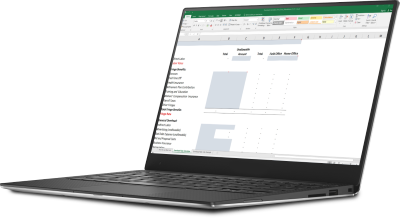If you are a government contractor, you likely already have a CPA helping you with accounting and taxes. But is the CPA you hired when you started your business still the right CPA for you?
There are a number of reasons why it might be time to consider a new CPA firm. Let’s take a look at a few of those triggers.
1. You’ve Grown In Size
We see it all the time. A one-person shop managing a single $500,000 contract suddenly lands a big fish — a $5 million contract. Almost overnight, that government contracting business grows exponentially in revenue and headcount. And almost overnight, that government contracting business outgrows its CPA.
Generally, when a contractor hits $5 million in revenue, they see the need to work with a CPA who does remediation of accounting and internal control systems, and who unequivocally understands indirect rates. As your compliance needs get more complex, your need for a sophisticated CPA increases.
An accountant who is well versed in all aspects of government contract compliance can help you identify potential issues before they become problems. That CPA can advise you how to meet the future obligations of your contracts, spot weak internal controls, and address HR issues like benefits and minimum wages and sick leave rules.
Likewise, if your new contracts result in hiring out of state employees, you’ll want a CPA who deals with multi-state taxation.
2. You’ve Outgrown Your Accounting System
As you grow, you might wonder if your current accounting system can handle your growth and larger contracts, while still being in in compliance.
Many government contractors start out with QuickBooks but then outgrow it. However, we find some contractors think they’ve outgrown QuickBooks, but when we take a closer look, we find that it’s still a good fit, but they just don’t know how to get the most out of QuickBooks.
Regardless of which accounting system you use, your CPA should advise you on whether your system is in compliance and whether you are ready to self-certify. Self-certification can be risky for government contractors and therefore it’s critical that you get the right advice on your system’s compliance.
3. You Move From a Firm Fixed Price to a Cost Plus Fixed Fee Contract
If you have a cost plus fixed fee contract, then you can expect an audit by the Defense Contract Audit Agency (DCAA). While an audit sounds ominous, it doesn’t have to be. The key is to work with a CPA who specializes in government contracting compliance, and who can manage the DCAA audit and address any findings.
4. You’re Not Sure Whether You’re In Compliance
This is a simple one. If you’re uncertain whether you’re in compliance, then you’re most likely not in compliance. Your CPA should be well versed in all aspects of government contract compliance, including FAR, DCAA, indirect costs, how to ensure that every transaction in your accounting system is compliant, and so much more.
Think of it this way: just when you think you’ve got a clear understanding of one contract’s compliance requirements, you get a new contract with an entirely different set of requirements. It’s hard to keep up. If you have contracts with the Department of Defense and the Department of Agriculture, for instance, your CPA should understand the different rules of both agencies and advise you on how to comply with those rules.
5. You’re Not Growing
While it might not be as obvious as the other signs you’ve outgrown your CPA, it might be time to move on if your business is stagnant or, worse, if you’re not profitable.
If your CPA doesn’t specialize in government contracting, for instance, they might not be advising you on indirect rates. Your CPA should help you calculate appropriate indirect rates (making sure that you’re bidding a competitive price, but will still make money) and negotiate those rates with government agencies. This, in turn, should help you grow and be profitable.
Are Government Contractors a Good Candidate for Outsourced Bookkeeping?
Yes! There are huge benefits of outsourcing some of your day-to-day tasks. Many CPA firms offer back office support so business owners can spend less time on bookkeeping, HR and QuickBooks, and more time on securing the next big contract.
Government contractors often grow faster than other types of businesses. Landing one big new contract can skyrocket your company’s growth in terms of revenue and employees almost overnight. Growing government contractors quickly discover why it makes sense to outsource their accounting function.
The firm you hire for outsourced accounting can:
-
Review internal controls and policies and procedures
-
Ensure that costs are being recorded appropriately
-
Generate reports — like indirect rate reports, project status reports and project costs reports — so you know where you are making and losing money
-
Offer QuickBooks support
The list goes on, but you get the idea.
Need Help?
Our Government Contractors Group can help you manage compliance and risk, and help you grow. Contact us online or call 800.899.4623 to discuss your government contracting business.


